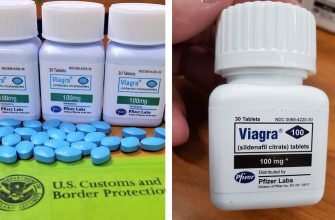Need help deciding if Viagra’s right for you? Let’s cut to the chase. Viagra, or sildenafil, significantly improves erectile function for many men experiencing erectile dysfunction (ED), boosting confidence and intimacy. However, potential side effects like headaches, flushing, and nasal congestion are common, and rarer but more serious ones exist. This article weighs the benefits against the risks, providing a clear picture to help you make an informed decision.
Benefits primarily revolve around improved sexual performance. Studies show Viagra’s success rate in achieving and maintaining an erection is substantial, particularly for men with mild to moderate ED. This translates to improved sexual satisfaction for both partners, strengthening relationships. Furthermore, it can offer a solution to psychological ED stemming from performance anxiety, creating a positive feedback loop of success.
Drawbacks are important to consider. Headaches affect a large percentage of users, and gastrointestinal upset and visual disturbances are also reported. More seriously, though less frequent, are heart-related side effects. Men with pre-existing heart conditions, high blood pressure, or taking certain medications should consult their doctor before use. Also, Viagra doesn’t address the underlying cause of ED; it only treats the symptom. A thorough medical evaluation is always recommended to identify and address potential root issues.
Remember: This information is for educational purposes only and doesn’t substitute professional medical advice. Always discuss Viagra or any ED treatment with your physician to determine its suitability for your specific situation and health profile. Your doctor can assess your health, weigh potential risks, and provide personalized guidance.
Pros and Cons to Viagra
Viagra offers significant benefits for many men, but it’s crucial to understand both sides before use.
Pros:
- Improved Erections: Viagra significantly improves erectile function, allowing for harder, more sustained erections suitable for sexual intercourse.
- Increased Confidence: Successful sexual performance boosts self-esteem and confidence in relationships.
- Improved Relationship Satisfaction: Enhanced sexual function frequently leads to improved intimacy and satisfaction within a partnership.
- FDA-Approved Treatment: Viagra is a widely used and clinically proven medication for erectile dysfunction.
- Relatively Quick Onset: Many men experience effects within 30-60 minutes of taking a pill.
Cons:
- Side Effects: Common side effects include headaches, flushing, nasal congestion, and visual disturbances. Rare but serious side effects include heart problems; consult your doctor immediately if you experience chest pain.
- Drug Interactions: Viagra interacts with certain medications, so informing your doctor of all medications you take is paramount.
- Cost: Viagra can be expensive, depending on dosage and insurance coverage. Generic versions are available and often more affordable.
- Not a Cure: Viagra treats erectile dysfunction symptoms, it doesn’t address the underlying cause.
- Individual Response Varies: Effectiveness differs between individuals. What works for one person might not work as well for another.
Before considering Viagra, schedule a consultation with your doctor. They can assess your overall health, discuss potential risks and benefits, and determine if Viagra is the right treatment option for you.
- Discuss your medical history thoroughly.
- Mention all other medications you’re taking.
- Ask about potential side effects and interactions.
- Explore alternative treatment options if necessary.
Viagra’s Effectiveness in Treating Erectile Dysfunction
Viagra boasts a high success rate for many men. Studies show that approximately 70-80% of men experience improved erectile function with Viagra. This improvement manifests as the ability to achieve and maintain an erection firm enough for satisfactory sexual intercourse.
However, individual responses vary. Factors like dosage, overall health, and the underlying cause of erectile dysfunction influence Viagra’s efficacy. For example, men with severe vascular disease or neurological conditions might see less dramatic results. Conversely, men with mild to moderate erectile dysfunction often report significant improvements.
Optimal results usually require finding the correct dosage. Your doctor will guide you through this process, starting with a lower dose and adjusting as needed. Open communication with your physician is crucial for managing any side effects and optimizing treatment.
While Viagra is generally well-tolerated, common side effects include headache, facial flushing, nasal congestion, and visual disturbances. These are usually mild and temporary. Severe side effects are rare, but immediate medical attention is warranted if you experience chest pain, sudden vision loss, or prolonged erection (priapism).
Before starting Viagra, discuss potential interactions with other medications you are currently taking. This is especially important for medications used to treat heart conditions, blood pressure, or liver disease.
Remember, Viagra is a prescription medication. Always consult your doctor before starting treatment to ensure it’s the right choice for you and to address any underlying health concerns contributing to erectile dysfunction.
Potential Side Effects and Risks Associated with Viagra
Viagra, while effective for many, carries potential side effects. Knowing these helps you make informed decisions.
Common side effects include headache, facial flushing, nasal congestion, and visual disturbances like blurry vision or sensitivity to light. These usually are mild and temporary.
Less common but more serious potential side effects require immediate medical attention. These include:
| Side Effect | Description | Action |
|---|---|---|
| Prolonged erection (priapism) | An erection lasting more than four hours. | Seek immediate medical help; this is a medical emergency. |
| Sudden vision loss | Complete or partial loss of vision in one or both eyes. | Consult a doctor immediately; this may indicate a serious condition. |
| Sudden hearing loss | Partial or complete hearing loss. | Seek immediate medical advice; this requires prompt attention. |
| Heart attack or stroke | Chest pain, shortness of breath, or other symptoms. | Call emergency services immediately. |
Men with pre-existing heart conditions, high blood pressure, or low blood pressure should discuss Viagra use with their doctor before taking it. The drug can interact with other medications, so always inform your physician about all medications you’re currently taking, including over-the-counter drugs and supplements. Always follow your doctor’s prescribed dosage and instructions. If you experience any concerning side effects, contact your healthcare provider without delay.
Alternatives to Viagra for Erectile Dysfunction
Consider Cialis (tadalafil) for longer-lasting effects, potentially up to 36 hours. This makes it a good option for spontaneity.
Alternatively, Levitra (vardenafil) offers a faster onset of action than Viagra, making it suitable for those needing quicker results.
Avanafil (Stendra) is another fast-acting option, often preferred for its shorter duration of effect and reduced side effects for some men.
Beyond oral medications, penile injections of alprostadil offer a direct approach, providing reliable erections when needed. Discuss this option thoroughly with your doctor to weigh the benefits against potential side effects.
Vacuum erection devices provide a non-invasive, drug-free method. They create a vacuum to draw blood into the penis, inducing an erection. This is a good choice for those seeking drug-free solutions.
Lifestyle changes such as regular exercise, a balanced diet, and stress management can significantly improve erectile function. These changes, often combined with other treatments, promote overall health and sexual well-being.
Penile implants are a surgical option for severe cases of erectile dysfunction that haven’t responded to other treatments. This involves surgically implanting rods into the penis to provide rigidity.
Consult your doctor to determine the best approach for your individual circumstances and health history. They can help you weigh the advantages and disadvantages of each alternative and create a personalized treatment plan.
Cost Considerations and Insurance Coverage for Viagra
Viagra’s price varies significantly depending on dosage, pharmacy, and whether you use a coupon or manufacturer savings program. Expect to pay between $50 and $80 per pill without insurance. Generic sildenafil, the active ingredient in Viagra, is considerably cheaper, often costing a fraction of the brand-name price.
Insurance coverage for Viagra is highly dependent on your specific plan. Many health insurance providers do not cover Viagra or similar medications for erectile dysfunction unless it’s prescribed to treat a specific underlying medical condition, such as pulmonary hypertension. Check your policy’s formulary or contact your insurance company directly to confirm coverage. Some plans may cover generic sildenafil but not brand-name Viagra.
Medicare Part D generally does not cover Viagra for erectile dysfunction, although exceptions may exist under specific circumstances. Medicaid coverage varies by state, so inquiring with your state’s Medicaid office is necessary.
To reduce costs, explore manufacturer savings programs, coupons from online pharmacies, and consider purchasing a larger quantity to potentially lower the per-pill price. Generic sildenafil remains a cost-effective alternative.
Always discuss prescription drug costs with your physician and pharmacist. They can offer valuable advice on navigating medication affordability and accessing potential assistance programs.
Long-Term Use of Viagra: Benefits and Risks
Consult your doctor before considering long-term Viagra use. They can assess your overall health and determine if it’s appropriate.
A potential benefit is the continued improvement in erectile function for men with persistent erectile dysfunction. This allows for consistent intimacy and improved quality of life.
However, prolonged use carries risks. Increased chances of side effects, such as headaches, flushing, and nasal congestion, are possible. More serious, though less common, side effects include vision problems, hearing loss, and heart problems. Regular blood pressure monitoring is advisable.
Long-term Viagra use can also interact negatively with other medications. Always inform your doctor about all medications and supplements you’re taking. This includes over-the-counter drugs.
Your doctor will likely monitor you regularly during long-term treatment, checking for any adverse reactions. They may suggest alternative treatments or adjustments to dosage if necessary.
Remember, Viagra is not a preventative measure and doesn’t address underlying health issues contributing to erectile dysfunction. Treating those issues is crucial for long-term health.
Lifestyle modifications such as diet, exercise, and stress reduction can significantly impact erectile function and may reduce reliance on Viagra. Discuss these strategies with your physician.






